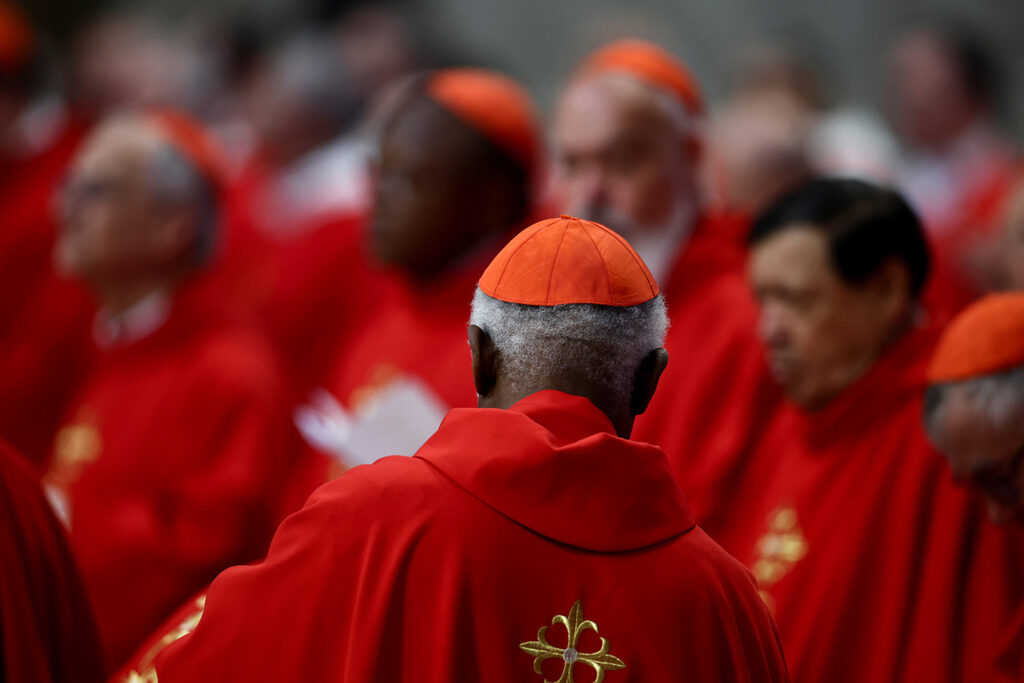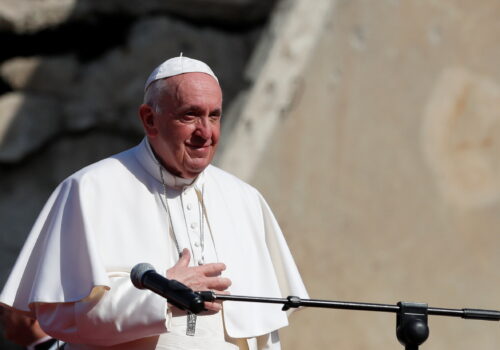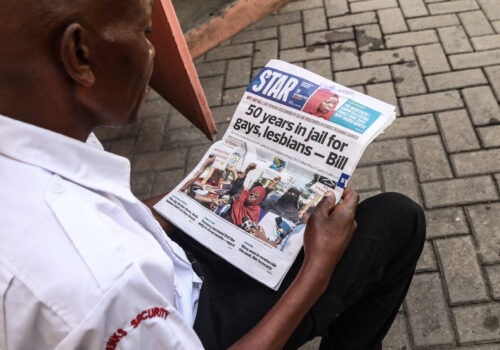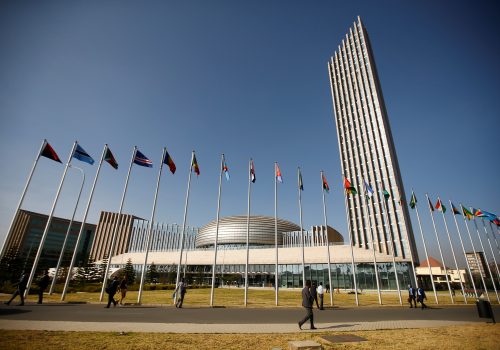On May 7, 133 Catholic cardinals will meet in the Sistine Chapel to elect a new pope. Discussions abound on whether an African will be next to ascend to the papacy. If one does, then he would not be the first: Victor I, Miltiades, and Gelasius I all hailed from the African continent, and each, serving during the early church, had a lasting impact on the church’s early foundations. All three were canonized, and it was during the pontificate of the African-born Miltiades in the fourth century that Constantine the Great issued the Edict of Milan, establishing religious toleration of Christianity in the Roman Empire. Around this same time, the church gained ownership over the Lateran Palace, the main papal residence for the next millennium.
From these popes to other early figures, such as Mark the Evangelist and Saint Augustine, Africans have held important roles in the church’s theology, philosophy, doctrine, and discourse. Should the next pope be African, it would indeed be a milestone in the modern era. But for an institution that often takes a longer view of issues, it would signify the return of leadership for a continent that helped define what the church has become.
The face of faith
Discussions about an African pope emerging from a conclave are nothing new. In 2002, then Cardinal Joseph Ratzinger spoke positively of the prospects of an African pope emerging at the next conclave, which took place in 2005. However, it was Ratzinger himself who was elected to the role, as Pope Benedict XVI. Yet his statement showcased the ongoing realpolitik of the College of Cardinals: an increasing number of Africans among the faithful and the clergy means more influence. As the French newspaper Le Monde pointed out during Pope Francis’s trip to the Democratic Republic of the Congo and South Sudan in 2023, the overall number of priests in Africa is increasing, and so too is the number of seminarians, which includes future priests. In fact, Africa is the only continent seeing an upward trend among seminarians.
The increase in African clergy has accompanied an expansion of Catholicism across the continent. In 1910, Africa had fewer than one million Catholics, according to estimates. In 2024, that number was 265 million. In fact, by 2050, Africa is expected to be home to nearly a third of the world’s Catholics. This growth will have longstanding implications for the makeup of the church. In 2022, the Vatican estimated that around thirteen million people joined the church that year. More than half were in Africa.
It is clear that Africa’s presence in the church is immense and growing, but that does not necessarily translate into a certainty that this or the next pope will be African. It is true that Pope Francis did much to make that a possibility and that there are several papabile African cardinals among the multitude of lists of contenders being compiled. But those lists are notoriously unreliable and conclaves are typically unpredictable. Inevitably, the conclave will see a debate unfold between the progressive and conservative blocs—terms that do not necessarily apply to the church, but ones that media and commentators tend to use nonetheless. By those measurements, the majority of African members in the curia and the College of Cardinals defiantly tilt conservative. It is in this sphere of influence that Africa has made its presence and voice known.
Dogma and discourse
If Pope Francis is remembered as leading the charge for a more liberal church, then African cardinals and bishops are at the forefront of the countercharge. Take, for example, the issue of same-sex blessings. Pope Francis drew much attention for his attitude toward same-sex blessings and other reforms, and (in)famously for saying “If a person is gay and seeks God and has good will, who am I to judge?” Following these actions, there was significant backlash among African bishops, who united into a continental common front to lead the conservative response. They had enough clout to drive the curia to, in effect, provide some leeway. The church has not been exempt from the culture wars, and it is notable that Cardinal Robert Sarah of Guinea, a conservative favorite, has been described by the press as an “anti-woke” cardinal.
At the same time, Pope Francis installed most of those eligible to vote in the upcoming conclave, including several Africans. Most of these, unsurprisingly, fell under the label of liberal and aligned with an agenda for reforming the church.
Another African who might be considered for the papacy is Cardinal Fridolin Ambongo Besungu of Congo. But Africa is not the only continent mentioned often in discussions about candidates. Take Cardinal Luis Antonio Gokim Tagle of the Philippines, who, if selected, would become the first pope from the Indo-Pacific region. Regionality will not matter as much as dogma and voting blocs, and a conservative African cardinal could well find allies among his American and Italian colleagues.
At the end of the day, though, it is a mystery who will arise from the conclave. What is not a mystery, however, is the growing strength of Africa in the church, both in numbers among the faithful and in theological and dogmatic discourse. The world must wait for the white smoke to learn who will be the next pope, but it is already clear that African bishops and cardinals are at the forefront of the conservative charge in the church. An African pope is not a given in this conclave or the next, but African agency and leadership in the twenty-first-century church is.
Alexander Tripp is the assistant director for the Atlantic Council’s Africa Center.
Further reading
Fri, Apr 25, 2025
Will Pope Francis’s Middle East legacy endure?
MENASource By Karim Mezran
The late Pope's final address on Easter Sunday was a capstone in a track record of advocacy for peace between the Israelis and Palestinians.
Thu, Feb 6, 2025
The United States needs a new guiding message in promoting LGBTQI+ rights in Africa: Tolerance
AfricaSource By Richard K. Bell
The United States should point to the fact that LGBTQI+ rights are, indeed, rights—and as is the case with rights, they have a legal basis.
Tue, Apr 2, 2024
Why Africans hold the future of global democracy in their hands
AfricaSource By Rama Yade
By the end of 2024, the face of political Africa will—theoretically—no longer be the same. With nineteen elections scheduled this year, the continent will see presidents leave who were elected more than ten years ago (in Senegal and Ghana), uncertain civilian transitions (in Chad, Mali, and Burkina Faso), high-stakes elections (as in South Africa), and strongmen hanging on (in Tunisia and Rwanda).
Image: Cardinal Peter Turkson along with other cardinals attends a mourning Mass for Pope Francis on the fourth day of Novendiali (nine days of mourning after the Pope's funeral) at St. Peter's Basilica at the Vatican on April 29, 2025. Photo via REUTERS/Yara Nardi.




